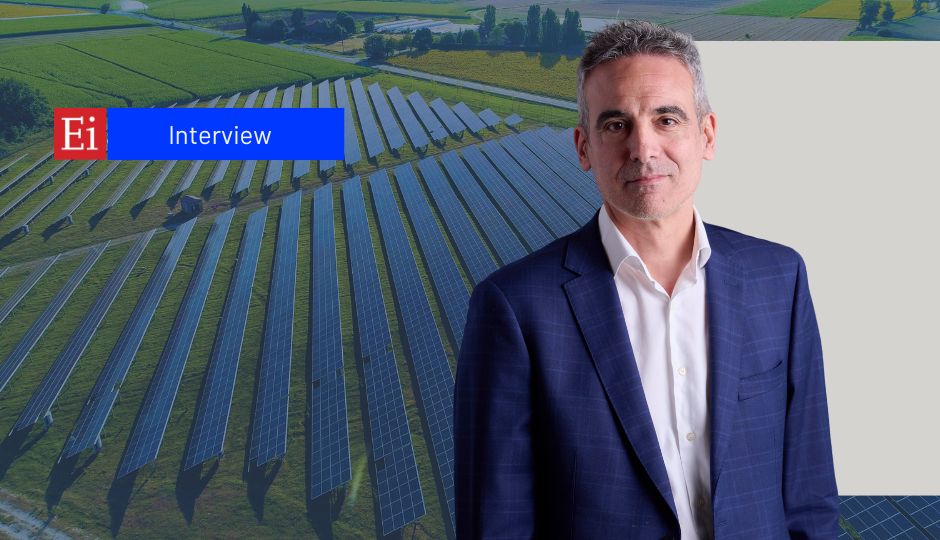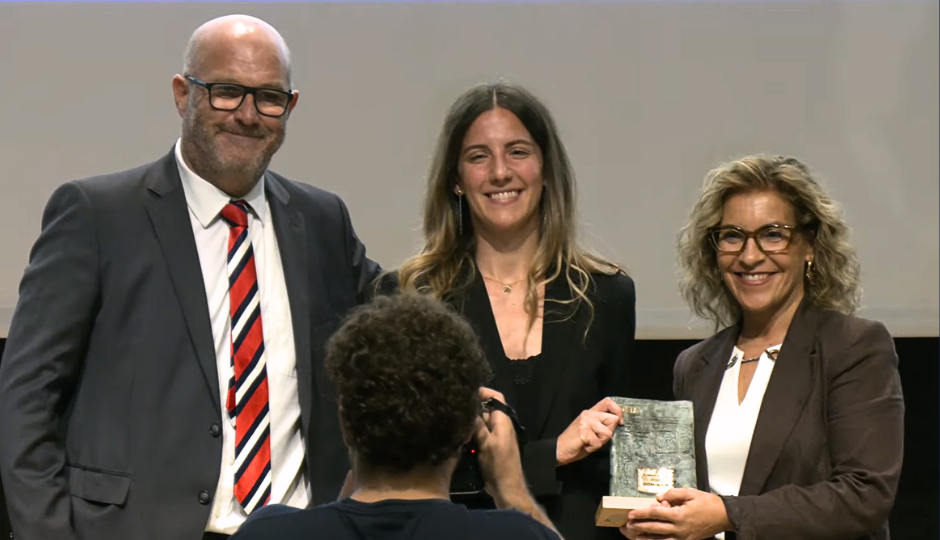At Dominion, we know that the energy transition is an opportunity to transform the global energy model. In this interview published in Estrategias de Inversión magazine, our CEO shares how we are leading renewable energy, electrification and decarbonization projects in countries such as the Dominican Republic, Italy and Colombia.
With a clear vision and a differential approach based on technology, efficiency and sustainability, we work every day to enable the three great transitions of the 21st century: energy, industrial and socio-digital.
In which areas of the energy sector is Dominion betting and what outstanding projects are you developing?
At Dominion we accompany our clients in their transformation towards more efficient and environmentally sustainable business models. To achieve this, we are relying on our sector knowledge and the application of technology with a different approach, positioning ourselves through our services and projects as an enabling agent in the three major transitions that society is going through: the energy, socio-digital and industrial transitions.
In the first of these transitions, the energy transition, we visualize two fundamental areas of opportunity: electrification and the development of renewable energies.
In the area of electrification, we deploy and maintain low, medium and high voltage grids and develop electric mobility projects - electric chargers, for example - in several countries in Europe and Latin America, such as Chile, Peru, Colombia and Spain.
In renewable energies, we build large-scale photovoltaic plants and participate in their promotion and operation, as turnkey projects. We currently maintain a solid presence in the Dominican Republic, with four projects in operation with more than 300 MWp, 60 MWp under construction and more than 200 MWp in the development phase. In parallel, we are expanding our activity in Italy, with the construction of our first projects in Sicily and Basilicata.
Another of the transitions, industrial, addresses the changes needed to have a more sustainable industry with lower environmental impacts. There are two areas of work with great opportunities for growth, where we at DOMINION are already working. On the one hand, the circular economy and, on the other, decarbonization. And in both cases, the energy industry has major challenges, which are business opportunities for us.
How does Dominion contribute to decarbonization and the circular economy in the energy sector?
The energy industries, like many others, have important challenges around decarbonization, i.e. they need to reduce their emissions, improve the use of heat and efficiently use the energy required by their production processes. From DOMINION we carry out many projects that, through the improvement of its infrastructure or modification of processes, pursue this goal.
On the other hand, in the circular economy, there is a growing trend in the recovery of industrial waste and reuse of critical materials. For example, the recovery of water and hydrocarbons in the Oil & Gas industry, where we have a leading position, is only part of a broader strategy to reduce the environmental footprint of the energy sector. Dominion is committed to providing a comprehensive waste management solution that starts with the industrial cleaning service, and closes the circle with the treatment and recovery of waste.
How does the company see the future of the energy sector and its transition to renewable energies?
At Dominion, we see the future of the energy sector as a process of accelerated transformation towards more sustainable, efficient and digitalized models. The transition to renewable energies is irreversible and will be marked by three major trends:
On the one hand, the development of renewable energies will continue to grow, with technologies such as solar and wind gaining prominence thanks to their higher efficiency and lower cost. In addition, the digitalization of electricity grids will be key to optimizing demand management and guaranteeing system stability, incorporating artificial intelligence and big data for more efficient operation. We are also witnessing a decentralization of the energy model, with a boom in self-consumption and energy communities, where consumers become “prosumers” with greater control over their energy.
In this context, our vision is to continue developing sustainable solutions and contributing to the advancement of a more efficient energy model.
What are the benefits of digitization and automation in the development of power grids and renewable energy plants at Dominion?
Digitalization and automation are key to making the vast majority of business processes more efficient. And this is also true for the development and management of power grids and renewable energy plants, making them more efficient, safe and sustainable.
Thanks to digitalization, we can optimize the operation of our facilities in real time, minimize downtime, improve demand forecasting, and maximize the performance of renewable energies, as well as optimize predictive maintenance to reduce costs and extend the service life of the facilities. In the case of electricity grids, the implementation of smart grids allows for more flexible and resilient management, facilitating the integration of renewable sources and guaranteeing the stability of supply.
What are the main regulatory challenges facing energy companies and how is Dominion preparing to meet them?
The energy sector is constantly evolving, with increasingly demanding regulations that force us to adapt quickly. The transition to a more sustainable matrix and the reduction of CO₂ emissions are two of the main challenges we face.
Regulation will continue to set the pace for the sector, but at Dominion we see these challenges as an opportunity to continue innovating and leading the change towards a more efficient and sustainable model.
What strategies does Dominion implement to reduce emissions and contribute to a more sustainable ecosystem?
Our most important role is to help our clients, through our services and projects, reduce their emissions and their impact on the environment, as we are not an emissions-intensive company. However, we are consistent, and within our Sustainability Strategy, emissions reduction is one of the five main areas of work. We have developed a decarbonization plan for the 2025-2030 period, aligned with the SBTi initiative and the objectives of the Paris Agreement. Our goal is to reduce direct and indirect emissions (Scope 1 and 2) by 42% through the electrification of equipment and fleets, the use of low-carbon fuels, improved energy efficiency, and increased consumption of renewable energy.
Regarding our value chain (Scope 3), we have set a goal of reducing emissions by 25% by promoting sustainable employee mobility, working with suppliers to optimize their carbon footprint, and reducing fuel use in our operations.











